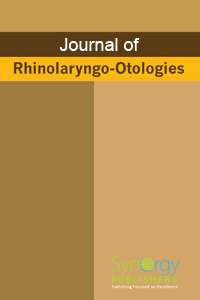
Bitter Taste Receptors in Innate Immunity: T2R38 and Chronic Rhinosinusitis Pages 12-18
Alan D. Workman1,2 and Noam A. Cohen1,2,3,4
1Department of Otorhinolaryngology: Head and Neck Surgery, University of Pennsylvania, Philadelphia, PA, USA; 2Perelman School of Medicine at the University of Pennsylvania, USA; 3Monell Smell and Taste Center, Philadelphia, PA, USA; 4Philadelphia Veterans Affairs Medical Center, Philadelphia, PA, USA
DOI: https://doi.org/10.12970/2308-7978.2017.05.03
Download PDFAbstract: Bitter taste receptors (T2Rs) serve a purpose far beyond taste sensation in the tongue; they have emerged as significant components of respiratory innate immune defense. T2R38, a specific T2R expressed in the airway, is activated by secreted products from gram-negative bacteria, and triggers nitric oxide (NO) production as a response. NO is directly bactericidal and also acts as a second messenger to increase ciliary beating and mucociliary clearance. T2R38 has common genetic polymorphisms that can render the receptor non-functional, and variations in functionality have demonstrated clinical impacts. Homozygotes for the non-functional form of the receptor have increased gram-negative bacterial proliferation in vivo, and these patients also are at a higher risk for chronic rhinosinusitis requiring functional endoscopic sinus surgery. Further studies have shown increased in vitro potential for biofilm formation in airway epithelial cells obtained from homozygote “non-taster” patients. Ongoing research into the clinical impact of T2R38 and other bitter taste receptors may yield novel therapeutics that leverage innate immune defense mechanisms and offer alternatives to conventional antibiotic treatment.
Keywords: T2R38, Bitter Taste Receptor, Chronic Rhinosinusitis, Sinonasal Immunity.
Read more

